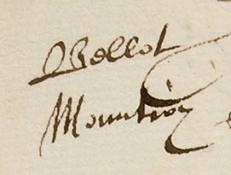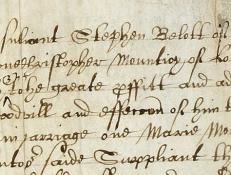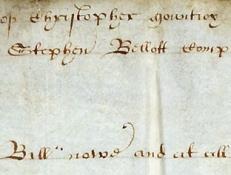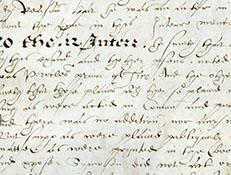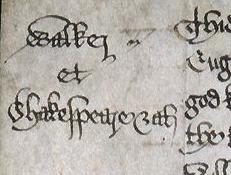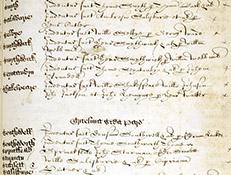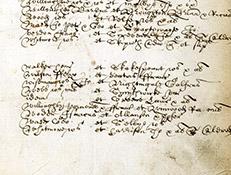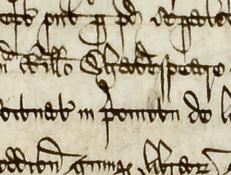To view a sortable list, please visit the Resource
All Documents
June 30, 1612
Shown here is the third of three orders given by the Court of Requests in Bellott v. Mountjoy.
January 28, 1612
Shown here is Stephen Bellott’s Bill of Complaint dated January 28, 1612, the first of four pleadings in Bellott v. Mountjoy.
February 3, 1612
Shown here is Christopher Mountjoy’s Answer, dated February 2, 1612, the second of four pleadings in Bellott v. Mountjoy.
August 25, 1613
SHAKESPEARE DOCUMENTED IS STILL GROWING! Descriptive content and transcriptions will continue to be added, updated and expanded. Check back for regular updates!
January 28, 1613
The registered copy of John Combe’s will, shown here, carries the date of January 28, 1612 [i.e. 1613] in a heading which may give the impression of concluding the preceding will.
January 28, 1613
John Combe of Stratford-upon-Avon was a contemporary of William Shakespeare. Though Combe was from a far wealthier and more established family, by the second decade of the seventeenth century Shakespeare’s accumulated wealth placed the two men on an essentially equal footing.
April 23, 1613
In March 1613 William Shakespeare and three associates agreed to purchase the Gatehouse of the former Dominican priory in London known as “Blackfriars” from Henry Walker for the sum of £140. The indenture of bargain and sale is dated March 10.
1613- 1614
In March 1613 William Shakespeare and three associates agreed to purchase the Gatehouse of the former Dominican priory in London known as “Blackfriars” from Henry Walker for the sum of £140. The indenture of bargain and sale is dated March 10.
1613- 1614
In March 1613 William Shakespeare and three associates agreed to purchase the Gatehouse of the former Dominican priory in London known as “Blackfriars” from Henry Walker for the sum of £140. The indenture of bargain and sale is dated March 10.
October 9, 1615
Ostler v. Heminges, a lawsuit regarding shares in the Globe and Blackfriars playhouses, is remarkable for two reasons.

